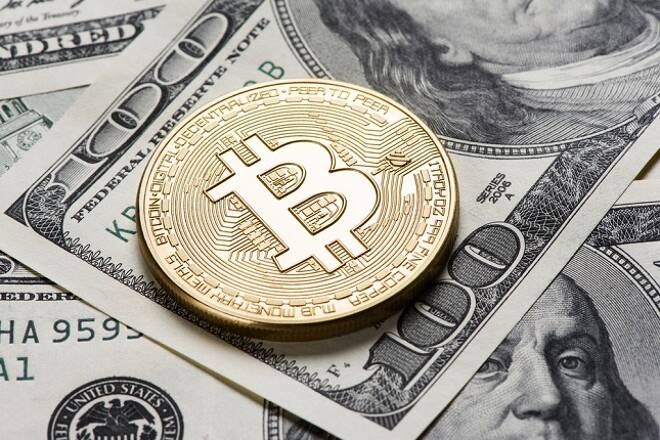Advertisement
Advertisement
Bitcoin in the Red Again, as Investors Continue to Run for the Door
By:
The markets are in the red going into the weekend, with investors wary ahead of next week's testimony to Congress that will likely lead to a shift in the U.S regulatory landscape, which will probably be adopted by other key jurisdictions.
It was another tough week for Bitcoin, with the cryptomarket continuing to unravel through to Friday’s close.
Investor sentiment has been knocked though the last few weeks, as market concern over the prospect of a material shift in government and regulator sentiment towards the cryptomarkets pulled the cryptos deep into the red.
For the week, Bitcoin slid 24.93% from Monday’s opening $11,685.58 to Friday’s $8,771.91 close, with the only good news for the market being Bitcoin’s recovery from a week low $7,625.25 hit midway through Friday’s session.
Through the week, negative news included both the Chairman of the SEC and CFTC being called to give testimony to the Senate on Tuesday.
For prospective Bitcoin investors, news of a widening ban on the use of credit cards to purchase cryptocurrencies on the exchanges has also hit hard, with JPMorgan Chase and Bank of America announcing that they will ban the purchase of Cryptocurrencies starting from the weekend.
The news follows the ban by South Korean banks earlier in the month and, with investors having been hit with heavy losses this month, raising concerns amongst the larger banks that credit card defaults could see an increase should the cryptomarkets continue to slide. Banks have also raised concerns over credit card and identity theft supporting the purchase of cryptocurrencies.
The latest move makes it all the more challenging for investors to gain access to the cryptomarkets, with credit card purchases being among the most efficient ways in which to purchase cryptocurrencies to date.
Banks have yet to ban the use of debit cards, while Citibank is also reportedly reviewing its credit card policy.
Get Into Cryptocurrency Trading Today
The moves by the larger banks were certainly expected and we will likely see other banks follow suit in the coming weeks, with banks not only concerned with credit risk, but also wanting to avoid falling foul of regulators that have been heavy handed on financial institutions since the Global Financial Crisis.
Following a 2.65% fall on Friday, the markets looked to have steadied through the early part of the weekend, with Bitcoin recovering from an intraday low $8,170.71 to sit at $8,641.55, a 2.23% fall for the day.
For the day rest of the weekend, with Cboe Bitcoin Futures’ February contract closing out the week at $8,520, any material upside will likely be limited, with the only positive for investors through the weekend being an end to the slide seen through the last week.
The cryptomarket landscape is about to change and if regulators have their way, the level of oversight will be along similar lines to the more mature asset classes, which will ultimately push out the dirty money and criminal activity associated with the cryptocurrencies and exchanges.
Talks of Bitcoin having bottomed out at current levels may be a little premature however, with Tuesday’s testimony the next step in the cryptomarket road to mainstream, with the markets likely to go through a Darwinism period of the survival of the fittest.
While Bitcoin’s dominance has picked up through the week, now sitting at 35.2%, we will expect the dominance to ease as the markets find some stability, with Bitcoin’s transaction times and fees a continued concern for Bitcoin’s future prospects.
About the Author
Bob Masonauthor
With over 28 years of experience in the financial industry, Bob has worked with various global rating agencies and multinational banks. Currently he is covering currencies, commodities, alternative asset classes and global equities, focusing mostly on European and Asian markets.
Advertisement
